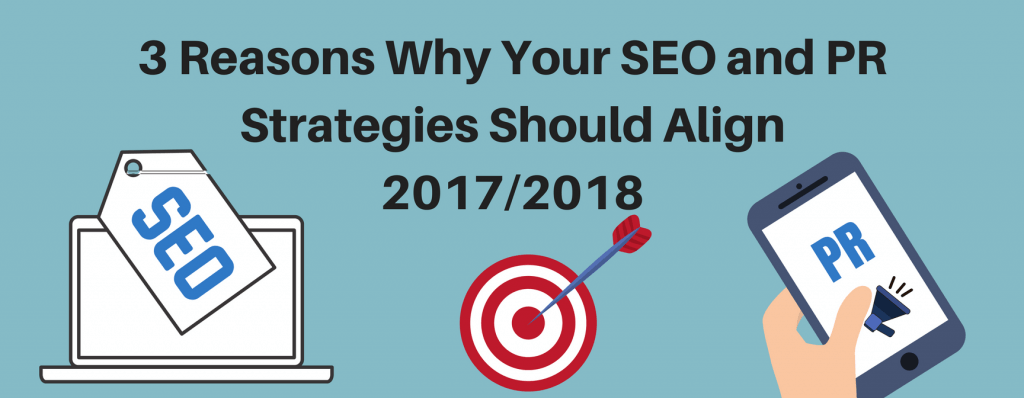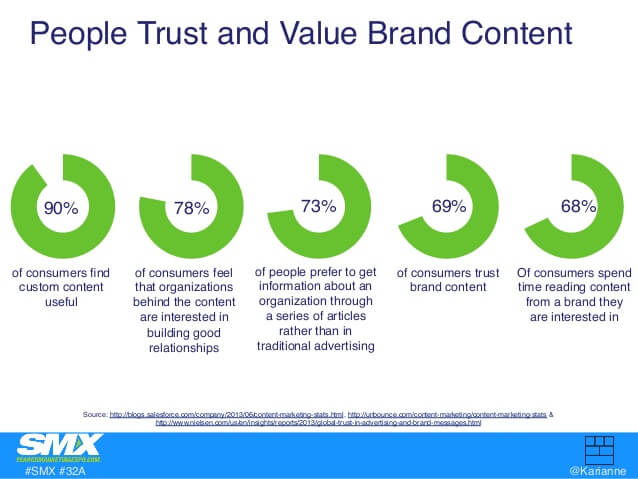If you’re picturing a public relations team researching keywords and scouring analytics before issuing press releases, that interpretation isn’t too far off from reality. Combining SEO best practices with strategic PR can pay off in big ways. Here are three compelling reasons you should align your SEO and PR strategies.
1. Public Relations and Search Engine Optimization Share a Purpose
Whichever side of the equation you’re on, you might wonder what SEO and PR have in common. One focuses on keywords, and one focuses on marketing, right? But beyond the basics, SEO and PR are both digital marketing features that serve to promote brand outreach, boosting views and earning leads.
Lead Generation Matters
Both SEO and PR have the same purpose, but the approaches are different. Public relations focus on developing and delivering quality content. In contrast, SEO involves specifically targeting content based on keyword research and anticipated success.
A new tool in SEO, schema markup, might help you boost your website’s position in search engine results, Kissmetrics suggests. This tool merges PR and SEO because the schema markup gives meaning to your data. Honing your audience appeal takes more than adding schema markup, however.
Making consumers aware of your product and earning their trust are vital PR goals, so schema markup, SEO, and branded content all help build relationships with customers. The below infographic from Neil Patel shows the upside to branded content, even if you’re only selling products.
Quality is More Important Than You Think
Too much emphasis on SEO and not enough on relevance and quality makes your content fall flat. Similarly, ignoring the customer experience for convenience won’t help your business. For example, failing to optimize mobile pages leaves a customer segment with a slow and unresponsive site experience.
Combining the strengths of SEO and PR means your marketing packs a double punch: attracting a specified audience and turning it into a loyal customer base. White hat SEO, as content guru Neil Patel explains in a guide to SEO, is already related to your brand’s PR position.
According to Neil, white hat strategies include:
- Relevant content
- Well-labeled images
- Relevant links and references
- Complete sentences with good spelling and grammar
- Standards-compliant HTML
- Unique and relevant page titles
Most of these strategies zero in on customer experience, which is top on the list of PR items that digital content should address. The key is longevity since simply earning clicks won’t do much for your website’s ranking or its bottom line.
Connectivity
As Backlinko notes, links are the best way to deduce web page quality. For the best chance at growth, you’ll want links from websites with authority on relevant topics. Google evaluates your site based on more than just keywords, and your connections to other websites influence your business’s ranking.
Beyond meaningless links, backlinks from influential sites in your industry or genre help your reputation and your standing with Google. Winning backlinks in earned coverage does take effort, however. From a PR agency perspective, earning links is about building relationships with others in the industry and offering value to them.
Photo by rawpixel
2. Merging SEO and PR Spurs Collaboration
Whether your business has ten employees or 100, ensuring that all team members are on the same page is the best way to make progress. If one team (or individual) is responsible for implementing SEO and another team handles press releases and media, you’re missing out.
How Can You Build Stronger, Savvier Teams?
Pushing your SEO gurus and PR professionals together forces them to share knowledge. Collaboration is the key to any business, but cross-training between the behind-the-scenes SEO work and the front-lines PR vehicles keeps the end goal in focus.
If your website content is all over the place without regard for SEO, or worse, with SEO but complete disregard for the human visitor’s experience, it won’t matter how great your recent ad campaign appears on social media. Your website and your media must mesh for the best customer experience.
While larger businesses benefit from merging their content and public relations teams, smaller companies might look toward a professional agency to handle their brand’s visibility. PR firms act as outside support for media needs, and celebrities in crisis aren’t the only ones who benefit from savvy PR representation.
3. How Does Aligning SEO and PR Earn Authentic Leads?
Using SEO and PR strategies help increase your reputation both online and off. You might consider paying for advertising when using SEO alone, since revamping your on-page SEO doesn’t guarantee visibility. Using PR strategy and tools alongside SEO negates the need for paying for clicks.
Eliminating Pay-Per-Click
PR focuses on earned media rather than directly paying for advertising, which is what Neil Patel recommends for businesses focusing on white hat SEO. See his video below about why you shouldn’t artificially boost social media posts, specifically Facebook.
You might think that paying for advertising on Facebook will earn your website more sales, but unless you’re directing the boosted posts to a product page, this method won’t help over the long term. Take Neil’s advice, and skip the paid ads on Facebook or any other social media site. Instead consider investing your money in and AdWords campaign. Learn more about AdWords in this piece from Fit Small Business.
Real Links Translate to Real Relationships
Authority Hacker shared an expose of link building services across a range of pricing options. None of these services were impressive, according to Authority Hacker, and likely aren’t worth the money they invested.
Part of the issue with for-hire link building that’s not managed by a professional PR team is that Google can penalize your site for questionable linking. With PR, you’re earning links based on manual outreach and connection, not from sites whose sole reason for existence is to post guest posts for paying customers.
PR & SEO Go Hand in Hand
In a digital world that encourages automation of nearly every business task, you might be tempted to add a few SEO plugins to your website and call it a day. But without the right PR strategy to back up those basic steps, your business is missing out on better leads, sales, and growth.
Share this Post



